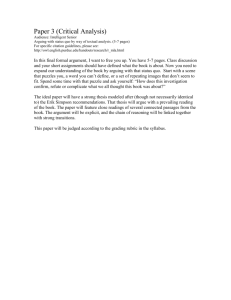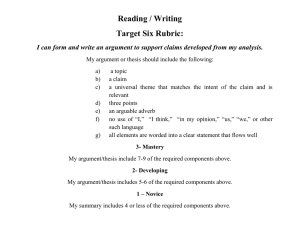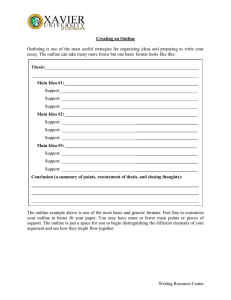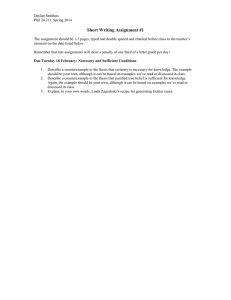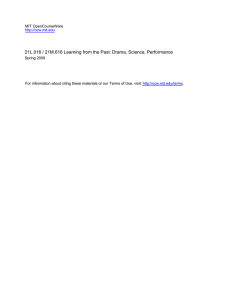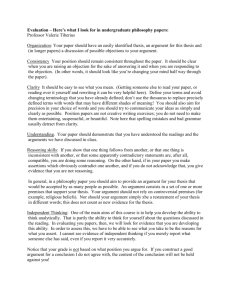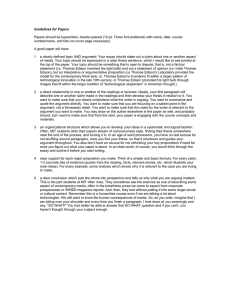Writing philosophy essays
advertisement
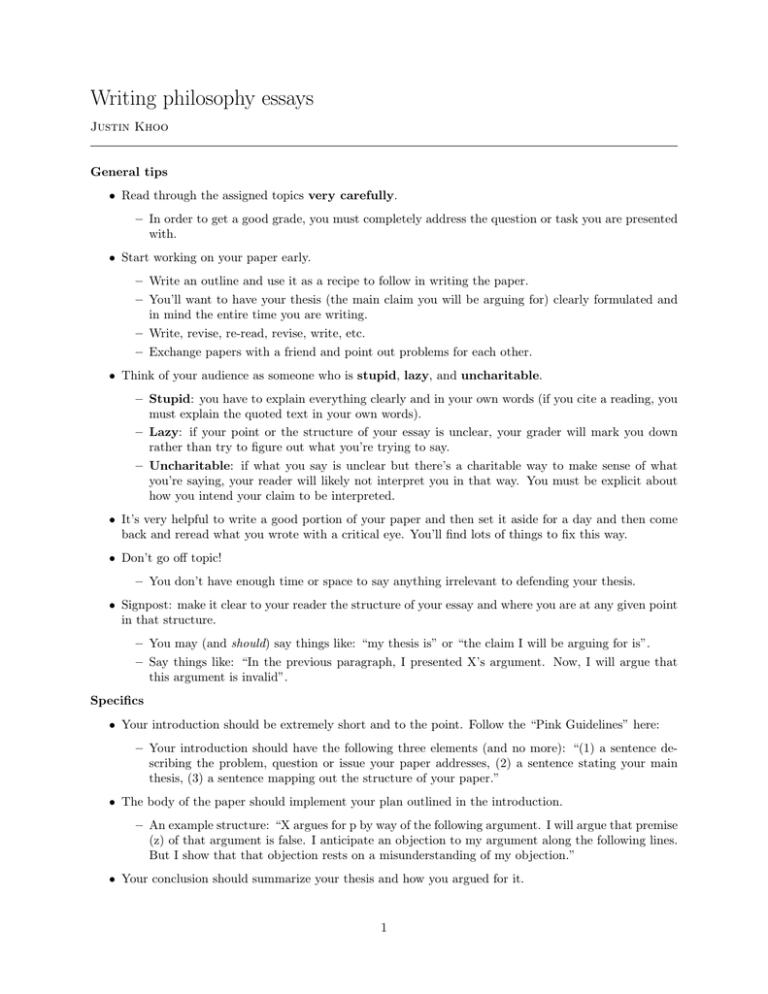
Writing philosophy essays Justin Khoo General tips • Read through the assigned topics very carefully. – In order to get a good grade, you must completely address the question or task you are presented with. • Start working on your paper early. – Write an outline and use it as a recipe to follow in writing the paper. – You’ll want to have your thesis (the main claim you will be arguing for) clearly formulated and in mind the entire time you are writing. – Write, revise, re-read, revise, write, etc. – Exchange papers with a friend and point out problems for each other. • Think of your audience as someone who is stupid, lazy, and uncharitable. – Stupid: you have to explain everything clearly and in your own words (if you cite a reading, you must explain the quoted text in your own words). – Lazy: if your point or the structure of your essay is unclear, your grader will mark you down rather than try to figure out what you’re trying to say. – Uncharitable: if what you say is unclear but there’s a charitable way to make sense of what you’re saying, your reader will likely not interpret you in that way. You must be explicit about how you intend your claim to be interpreted. • It’s very helpful to write a good portion of your paper and then set it aside for a day and then come back and reread what you wrote with a critical eye. You’ll find lots of things to fix this way. • Don’t go off topic! – You don’t have enough time or space to say anything irrelevant to defending your thesis. • Signpost: make it clear to your reader the structure of your essay and where you are at any given point in that structure. – You may (and should) say things like: “my thesis is” or “the claim I will be arguing for is”. – Say things like: “In the previous paragraph, I presented X’s argument. Now, I will argue that this argument is invalid”. Specifics • Your introduction should be extremely short and to the point. Follow the “Pink Guidelines” here: – Your introduction should have the following three elements (and no more): “(1) a sentence de­ scribing the problem, question or issue your paper addresses, (2) a sentence stating your main thesis, (3) a sentence mapping out the structure of your paper.” • The body of the paper should implement your plan outlined in the introduction. – An example structure: “X argues for p by way of the following argument. I will argue that premise (z) of that argument is false. I anticipate an objection to my argument along the following lines. But I show that that objection rests on a misunderstanding of my objection.” • Your conclusion should summarize your thesis and how you argued for it. 1 MIT OpenCourseWare http://ocw.mit.edu 24.221 Metaphysics Spring 2015 For information about citing these materials or our Terms of Use, visit: http://ocw.mit.edu/terms.
